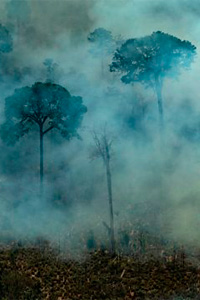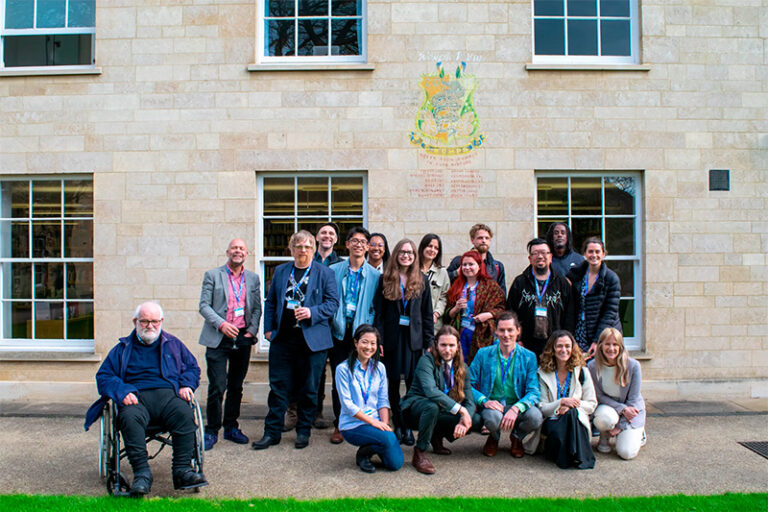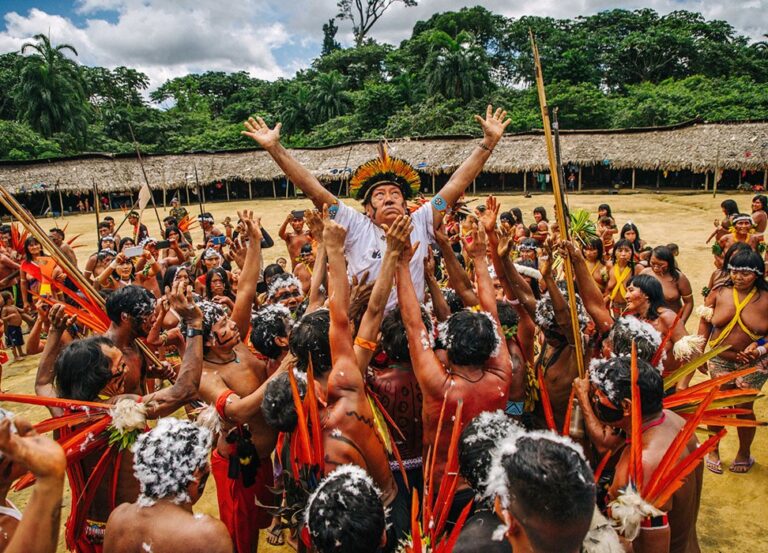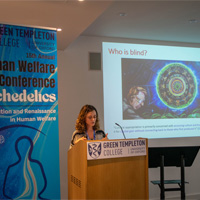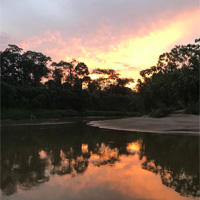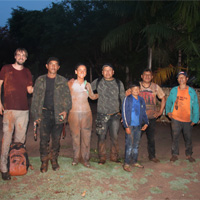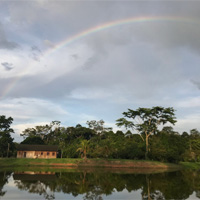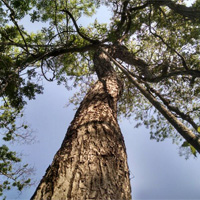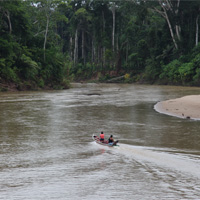It was a moment of hope when I was growing up in Brazil. Although the country has always suffered from corruption and violence, the 1988 constitution was born out of a democratic process. Since 1964 Brazil had been under a military dictatorship, a ‘regime of exception’, in which individual and social rights were restricted and even ignored. The country was governed in the interests of the ruling dictatorship justified by the need to maintain national security. But a desire for change grew among the population who fought for a new constitution. Independent of the political controversies, the Federal Constitution of 1988 secured the fundamental human rights of all Brazilians.
The Amazon forest was just being ‘opened up’ with the building of the two national integration highways — the Belém-Brasília Highway and the famous Trans-Amazon Highway. On the radio, we listened to Renato Russo paraphrasing Stefan Zweig (‘Brasilien Ein Land Der Zukunft’) in song that Brazil was the country of the future (“O Brasil é o país do futuro”):
“We have peace; We have time; It’s time and now it’s here”.
But what is happening now, thirty years later in 2017? Unfortunately, this post does not bring good news. It seems that Zweig and Russo’s predictions were very romantic and Raul Seixas, another rock star from that time, was the one who was predicting the future:
“The solution for our people I will give; Good business so no one ever saw;
Everything is ready here, just come and get it; The solution is to rent Brazil;
Foreigners I know they will like it; The Atlantic has a view to the sea;
The Amazon is the Back Garden.”
Since President Dilma Rousseff was impeached by the corruption-tainted Senate in 2016, the number of murders in the Amazon has been increasing exponentially. Land-grabbing, deforestation and environmental change have led to increasing levels of violence, criminalization, the repression of environmental defenders, and social instability. In 2017, there have already been 62 murders of environmental defenders. The conflicts, evictions and clashes are mainly caused by the increasing competition over the natural resources of land, minerals and forests. Recent years have seen the increasing power of groups linked to agribusiness and parliamentarians financed by the arms industry, along with the destruction of the national indigenous peoples’ foundation, FUNAI, through budget cuts and pressure from the ranchers’ lobby in Congress. The link between the dominion of the agribusiness group in the government and the growth of violence in the Amazon is clear. There is a direct connection between land grabbing, deforestation, and the treating of many workers as slaves.
President Temer, who has been in power since 2016, has issued constitutional amendments, decrees and bills that not only threaten existing conservation efforts and Brazil’s climate targets, but perhaps more importantly, also threaten the rights of indigenous people, quilombolas, smallholders, rubber tappers and environmental defenders. Corruption and economic interests backed by the same argument of national security are the major forces of the deforestation, impunity and the non-realisation of rights that blight Brazil. Measures such as the possible opening up of the Renca reserve for mining, the paralyzation of the demarcation of indigenous lands through the ‘marco temporal’ 1988 deadline, the possible modifications on the environmental licensing process to allow the faster approval of large scale projects, the changes made at the national Terra Legal program to offer an amnesty to illegal land grabbers, the promotion of commodity waterways and railways backed by Chinese and European financing and engineering clearly show that we are selling out the Amazon. But at which price?
The failure to meet the voluntary targets assumed under the Paris Agreement will have consequences far beyond Brazil’s borders as the Amazon forest is a major regulator of global climate. And the increasing rates of deforestation will release large amount of carbon from climate-related forest dieback. Even more important than halting the damaging initiatives of Temer is addressing the underlying global causes of the growing exploitation of Brazil’s natural resources: consumerism, population growth and the the increasing appetite for development. These are all directed linked to the way we perceive our remaining forest resources.
At this moment, the world’s largest rainforest is turning to ashes. And those who are trying to defend it are the peoples who do not see the forests as their property, but as their lives. And the future? The future is now and it smells like a burned forest marked by innocent blood.

